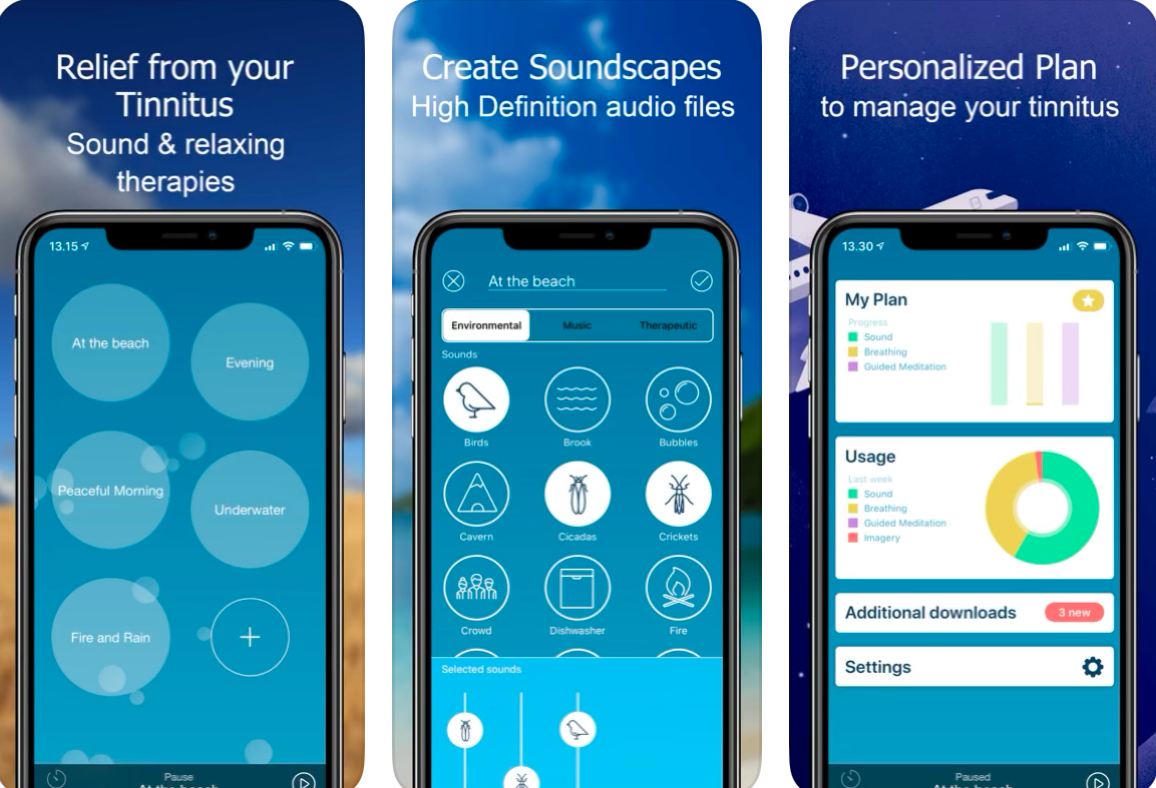Living with tinnitus can feel like being trapped in an invisible prison, a high-pitched, constant sound that refuses to fade. For many, it’s not just about the sound itself, but the anxiety and stress that come with it. Fortunately, there is a way out. Understanding how your brain responds to tinnitus and learning how to retrain that response is the first step toward healing.
In this post, you’ll learn why tinnitus triggers anxiety, how this becomes a vicious cycle, and what strategies can help you manage both the sound and the stress that come with it.
What Is Tinnitus, Really?
Tinnitus is the perception of sound without an external source. It might sound like ringing, buzzing, hissing, or even high-pitched tones. While some people barely notice it, others find it deeply distressing, especially when it’s constant or worsens during quiet moments, like when trying to fall asleep.
Here’s the thing: the sound itself is not inherently harmful. In fact, many people with tinnitus go about their lives unbothered. So why does it become so overwhelming for some?
The Role of the Brain in Tinnitus Distress
To understand tinnitus anxiety, you need to understand the amygdala, a part of the brain that acts like an alarm system. The amygdala is trained to react to danger. It gets triggered by high-pitched, urgent sounds like fire alarms or sirens. And for many people, tinnitus resembles those sounds.
When your amygdala hears the ringing of tinnitus, it may misinterpret it as a threat. This activates your body’s stress response increased heart rate, muscle tension, shallow breathing, and a heightened state of alertness. You may begin to feel panicked or on edge, even if you consciously know there’s no real danger.
This stress response makes the tinnitus feel louder and more intrusive, which in turn makes you more anxious, a self-reinforcing cycle.
Understanding the Tinnitus Anxiety Loop
This cycle is known as the tinnitus-anxiety loop, and it works like this:
- You hear the ringing.
- Your brain interprets it as a threat.
- You feel anxious and uncomfortable.
- You resist or try to block out the sound.
- Your brain takes this resistance as confirmation that the sound is dangerous.
- The anxiety intensifies, and the tinnitus feels louder.

The good news is: it’s possible to retrain your brain and reduce tinnitus distress. Here are five evidence-based strategies:
1. Recognize the Cycle
The more you fight it, the more power you give it. This is what we often refer to as “the tinnitus trap.”
A Story of Fear and Retraining
Let’s shift gears with a simple story that illustrates how fear can be learned—and unlearned.
Imagine a young child terrified of bears during a camping trip. Every rustle in the bushes sends her into a panic. Her amygdala is firing nonstop. But eventually, she goes on a hike, sees a bear from a safe distance, and nothing bad happens. Suddenly, her fear begins to fade. Her brain learns: not every noise means danger.
This is how our brain works. It learns through experience. And the same mechanism applies to tinnitus. The more you experience the sound without reacting to it as dangerous, the more your brain learns to ignore it.
Habituation: Your Brain’s Natural Filter
This process of learning to ignore non-threatening stimuli is called habituation. You already experience this every day. Think about the sound of your refrigerator humming or the background noise of traffic outside your window. You don’t notice these sounds after a while because your brain deems them unimportant.
The key to habituation with tinnitus is changing your brain’s interpretation of the sound. You’re not trying to eliminate the sound, you’re trying to eliminate your brain’s reaction to it.
How to Break the Tinnitus-Anxiety Cycle
Become aware of when it’s happening. Say to yourself:
“I’m hearing the sound. I’m starting to feel anxious. I want to resist it.”
Just naming it breaks some of its power.
2. Calm the Nervous System
Use tools like:
- Deep breathing
- Progressive muscle relaxation
- Grounding techniques
These help tell your body, “I am safe.” When your body is calm, the amygdala begins to settle.
3. Reframe the Sound
Instead of saying, “This is awful. I can’t take it,” try:
“This is just a sound my brain is noticing. It’s not dangerous. It’s just a sound.”
Your interpretation matters. When your brain believes there’s no threat, habituation can begin.
4. Stay Engaged in Life
Avoiding activities or canceling plans because of tinnitus tells your brain the sound has control.
Flip the message: “I can live my life even with this sound in the background.”
Live fully. Let your brain see the evidence that you’re safe and resilient.
5. Seek Support
You don’t have to navigate this alone. Audiologists trained in tinnitus retraining therapy (TRT), CBT-based tinnitus management, or sound therapy can guide you. Online and in-person support groups can also be a lifeline.
The Power of Neuroplasticity
If you’ve been stuck in the tinnitus anxiety trap, you are not broken. Your brain is doing exactly what it was designed to do, protect you. But the brain is also incredibly adaptable.
With patience, self-compassion, and the right tools, your brain can learn a new response. It can quiet the alarm system, dial down the distress, and allow tinnitus to fade into the background.
Final Thoughts: You’re Not Alone, and There Is Hope
Tinnitus may feel relentless, but it doesn’t have to control your life. By understanding the brain’s fear response, recognizing the anxiety loop, and applying habituation techniques, you can take back control.
Remember:
- You are safe.
- This is just a sound.
- Your brain can change.
And most importantly, you are not alone.
If you’re looking for a supportive community, consider joining online tinnitus support groups, or speak with a qualified audiologist who specializes in tinnitus therapy. The journey may take time, but healing is absolutely possible.
Prefer to watch instead? Here’s my quick video on tinnitus and anxiety trap and how to break free from it!



